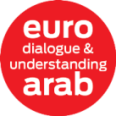“Comedy turned out to be a great way to get to know Lebanon, its history and its people. With simple questions like: ‘Who’s your favourite comedian, and why?, ‘What do you feel can’t be joked about?, ‘Which jokes do you find offensive?’, people easily opened up. It showed society from an inside perspective.”
Janneke’s travel grant covered her stay in Lebanon, where she did a residency at Haven for Artists in Beirut. A comedian and writer in her native Netherlands, Janneke used her talent and interests in these fields to engage in cultural exchanges and dialogues which allowed her to discover different layers of Lebanese society and culture, in addition to building long-term relations with the network she established while in Beirut.
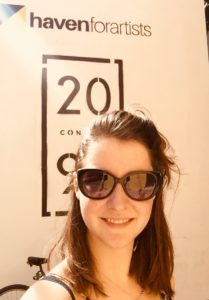 She found humour to be a powerful tool in Lebanon: it touches upon elements of daily life, but also topics such as freedom of speech, freedom to criticize, and freedom to express oneself. She was able to meet and interview different comedians and activists who address these topics in their works: for instance, Jad Ghosn, famous for his journalistic comedy; Salam el Zaatari, whose show brings together comedians from different religious backgrounds with the aim of being able to “joke about almost anything”; and Wissam Kamal, a stand-up comedian whose shows can be categorized as acts of social and political activism. Wissam plans to come to the Netherlands in the future, where him and Janneke plan to further collaborate.
She found humour to be a powerful tool in Lebanon: it touches upon elements of daily life, but also topics such as freedom of speech, freedom to criticize, and freedom to express oneself. She was able to meet and interview different comedians and activists who address these topics in their works: for instance, Jad Ghosn, famous for his journalistic comedy; Salam el Zaatari, whose show brings together comedians from different religious backgrounds with the aim of being able to “joke about almost anything”; and Wissam Kamal, a stand-up comedian whose shows can be categorized as acts of social and political activism. Wissam plans to come to the Netherlands in the future, where him and Janneke plan to further collaborate.
Through Haven for Artists, Janneke was also able to talk to activists who address women’s rights and LGBTQ rights through various manners, including humour. These topics are increasingly being touched upon by the media, especially television and social networks. Activist Shaden Esperanza stressed the importance of this:
“Humour can present things from a different angle, so it’s a great way to make you feel stupid about a stereotype. It can be a wake-up call when it’s presented in a way where it slaps you in the face. Most people in Lebanon are taking things with laughter… it allows you to digest things in a more reasonable way.”
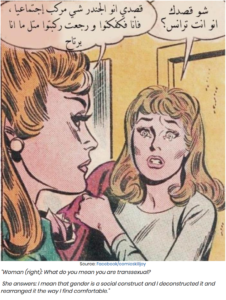 Janneke also got first introduced to playback theatre, which she now sees as an effective therapeutic tool which she plans on incorporating into her methodology back home: in an improvisational setting, the audience tells their story and sees it enacted on stage by actors. Through this exchange, people “gain insight into their own life, connect to others and find catharsis.” This form of theatre is commonly used in community centres, refugee camps, and prisons.
Janneke also got first introduced to playback theatre, which she now sees as an effective therapeutic tool which she plans on incorporating into her methodology back home: in an improvisational setting, the audience tells their story and sees it enacted on stage by actors. Through this exchange, people “gain insight into their own life, connect to others and find catharsis.” This form of theatre is commonly used in community centres, refugee camps, and prisons.
Janneke also got first introduced to playback theatre, which she now sees as an effective therapeutic tool which she plans on incorporating into her methodology back home: in an improvisational setting, the audience tells their story and sees it enacted on stage by actors. Through this exchange, people “gain insight into their own life, connect to others and find catharsis.” This form of theatre is commonly used in community centres, refugee camps, and prisons.
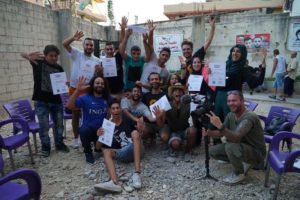
Going further into the topic of refugees, Janneke visited camp Nahr el Bared with Sounds of Change founder Lucas Dols. There she met Palestinian youngsters (pictured right), which to her was a changing experience, as she realized that despite the hardships they face on a daily basis, they were able to find joy and laughter while participating in activities by NGOs such as Sounds of Change.
Janneke’s travel scholarship to Lebanon has inspired her to work on further articles about her experience, using some of them as the basis for a new theatre show. She also has plans of extending this to television. She has found her stay in Lebanon to have enriched her artistically and personally, inspiring her to “continue her mission”.
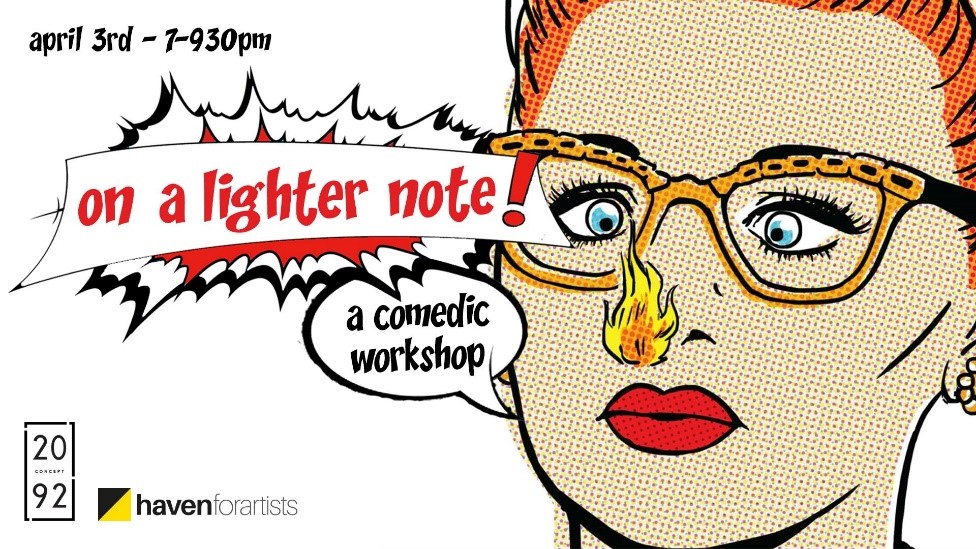
Banner for Janneke’s comedy workshop at Haven for Artists, Beirut, April 2018.

